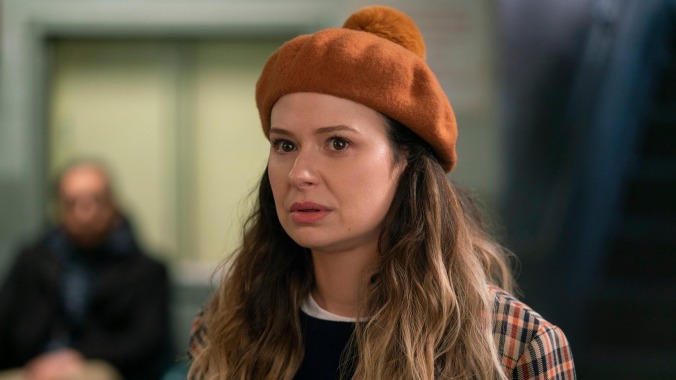Netflix hit with defamation lawsuit concerning Inventing Anna character
Rachel Williams says the show depicts her as a "greedy, snobbish, disloyal, dishonest, cowardly, manipulative, and opportunistic person"

Netflix has been hit with a lawsuit for defamation and false light invasion of privacy for its portrayal of former Vanity Fair photo editor and Anna Sorokin associate Rachel Williams in the series Inventing Anna.
“This action will show that Netflix made a deliberate decision for dramatic purposes to show Williams doing or saying things in the Series which portray her as a greedy, snobbish, disloyal, dishonest, cowardly, manipulative and opportunistic person,” reads the complaint, filed in Delaware federal court.
The show sports the quippy disclaimer, “This story is completely true. Except for the parts that are totally made up.” Well, Williams argues that nearly everything portrayed by Katie Lowes in Inventing Anna is made up, from the mooching nature of her friendship with Sorokin to how the two’s relationship ended. In the series, it’s implied in many scenes Williams is a freeloader who was only friends with Sorokin for her perceived wealth.
The lawsuit—which only names Netflix as the defendant and not the show’s creator Shonda Rhimes—seeks unspecified damages, a jury trial, and an injunction to have the material involving Williams edited out of Inventing Anna. It should be noted that aside from Sorokin (who was paid by Netflix for the rights to her story), Williams is the only significant character in the series based on an actual person.
“The magnitude of the harm to Williams caused by the Netflix’s defamation has been extraordinary by any plausible measure,” the complaint continues. “The Series has been viewed by millions of people around the world, and as a result of Netflix’s false portrayal of her as a despicable person, she has been subjected to a torrent of online abuse which have caused her personal humiliation, distress, and anguish, as well as damages to her earnings and/or potential earnings.”
Williams’ representation, Alexander Rufus-Isaacs, points to an interview with executive producer Rhimes as evidence for the alleged intentional defamation.
“We wanted to know what we were making up,” Rhimes said on Inventing Anna: The Official Podcast back in March. “We didn’t want to be making things up just for the sake of it. We wanted to intentionally be fictionalizing moments versus just accidentally be fictionalizing them.”
In another interview with The Hollywood Reporter, Rhimes said, “There was also stuff that we invented because it needed to be invented to make the story really sing and be what it should be.”
Katie Lowes, who played Williams in the series, previously said, “[The Rachel character is] a people pleaser. She’s young, naïve, and had a privileged life. I don’t think this is necessarily true of Rachel Williams in real life; I think this is true of the character Shonda wrote and what Shonda needed the character to be for the show.”
Additionally, while the Netflix series is based on Jessica Pressler’s New York Magazine article “How an Aspiring ‘It’ Girl Tricked New York’s Party People,” Williams wrote her own piece for Vanity Fair and published the book My Friend Anna: The True Story of a Fake Heiress. Williams later signed a deal with HBO for the rights to her works.
“The reason why we have had to file this lawsuit is because Netflix used Rachel’s real name and biographical details, and made her out to be a horrible person, which she is not,” Rufus-Isaacs says in a statement to Deadline. “The devastating damage to her reputation could have been avoided if only Netflix had used a fictitious name and different details. Why didn’t they do this for her, when they did for so many other characters in the Series? Perhaps the reason was that she had chosen to play for the other team, i.e., HBO.”
In a statement to THR, Williams says, “Netflix purposely used my real name, and real aspects of my life, to create a totally false and defamatory characterization of me. The truth matters and portraying real people requires real responsibility. I am filing this lawsuit to hold Netflix accountable for its deliberate recklessness.”